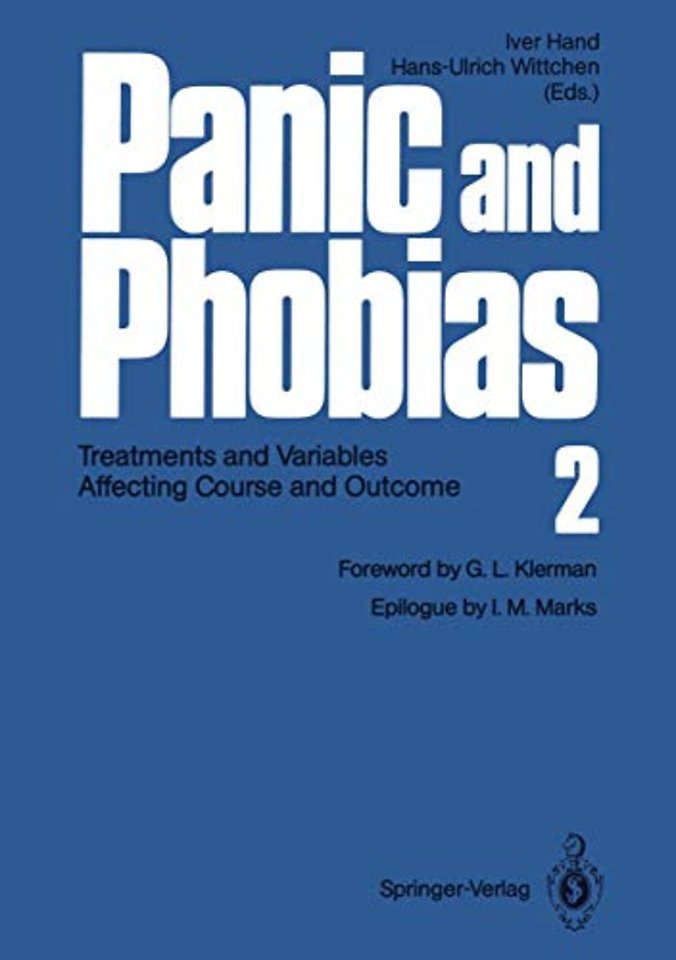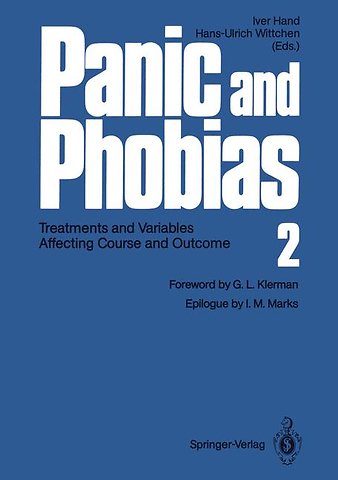Panic and Phobias 2
Treatments and Variables Affecting Course and Outcome
Samenvatting
Behavioral and biological research in behavioral techniques were developed recent years have produced partially con already in the early 1970s (Hand et al. tradictory treatment results and recom 1974) and have proved extremely success mendations for phobias with and without ful in long-term follow-ups (Hand et al. 1986). The occurrence of panic attacks panic attacks, for panic disorder, and for anxiety disorders in a broader sense. independent of phobic trigger situations The new classification of anxiety disor is almost never mentioned as an obstacle to the effective behavioral therapy of ders in both DSM-III (1980) and its revision DSM-IIIR (1987), which gives phobias. panic attacks a key role with regard to Until very recently, professional interac etiology, differential diagnoses, and treat tion and mutual evaluation regarding ment has not only stimulated research in these contradictory views and results have this field but has also provoked growing been almost non-existent. Together with controversy among clinicians and resear European and American colleagues, we chers. Biologically oriented authors have addressed these questions in a previous interpreted anxiety disorders with panic volume, examining in more detail the attacks as "endogenous" disorders linked epidemiological, psychopathological, and to depression, claiming pharmacological experimental evidence for each of these treatments to be the essential interven positions (Hand and Wittchen 1986).
Specificaties
Inhoudsopgave
Anderen die dit kochten, kochten ook
Net verschenen
Rubrieken
- aanbestedingsrecht
- aansprakelijkheids- en verzekeringsrecht
- accountancy
- algemeen juridisch
- arbeidsrecht
- bank- en effectenrecht
- bestuursrecht
- bouwrecht
- burgerlijk recht en procesrecht
- europees-internationaal recht
- fiscaal recht
- gezondheidsrecht
- insolventierecht
- intellectuele eigendom en ict-recht
- management
- mens en maatschappij
- milieu- en omgevingsrecht
- notarieel recht
- ondernemingsrecht
- pensioenrecht
- personen- en familierecht
- sociale zekerheidsrecht
- staatsrecht
- strafrecht en criminologie
- vastgoed- en huurrecht
- vreemdelingenrecht







